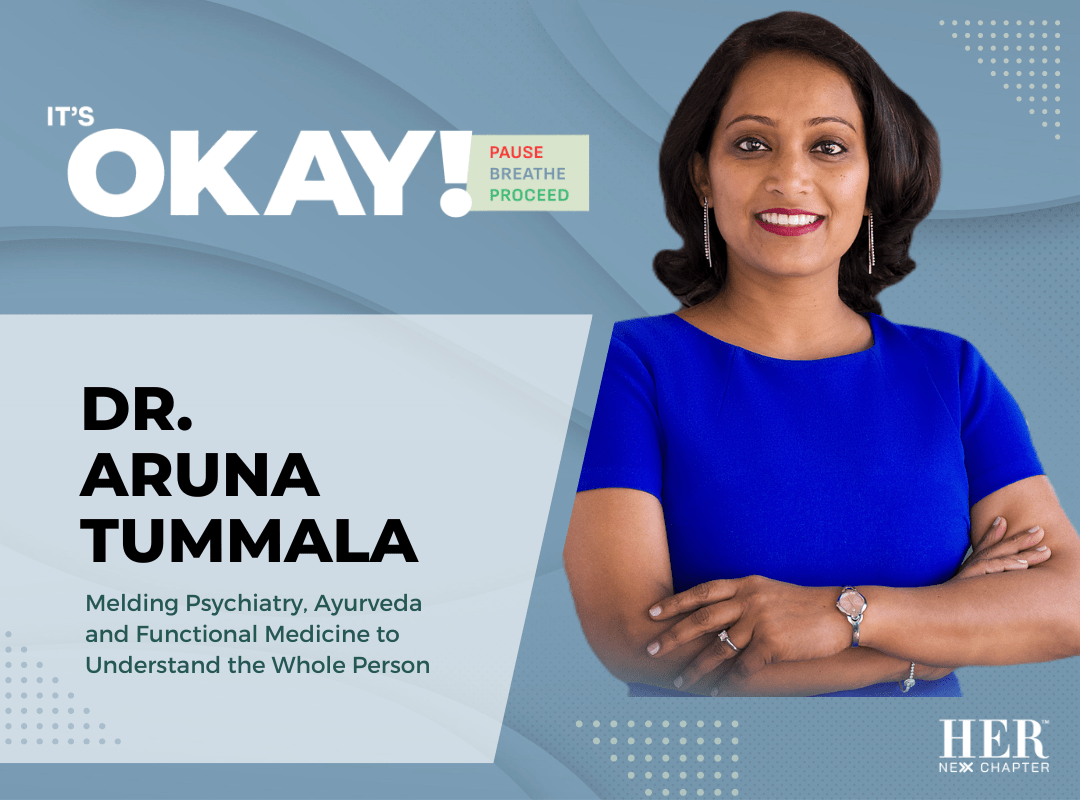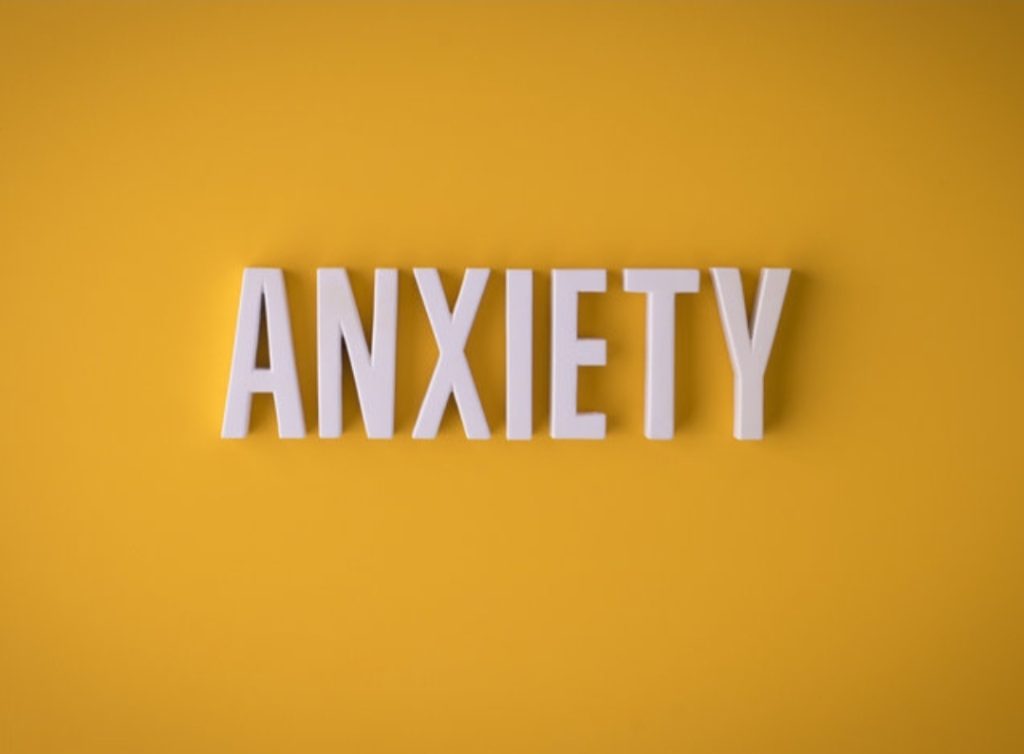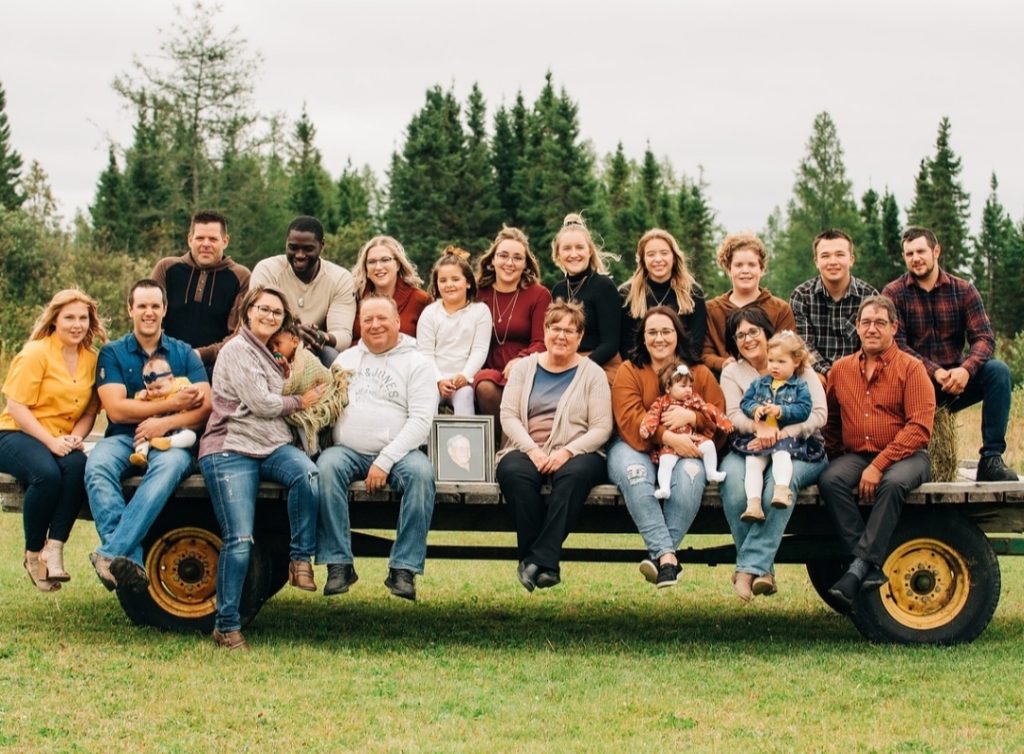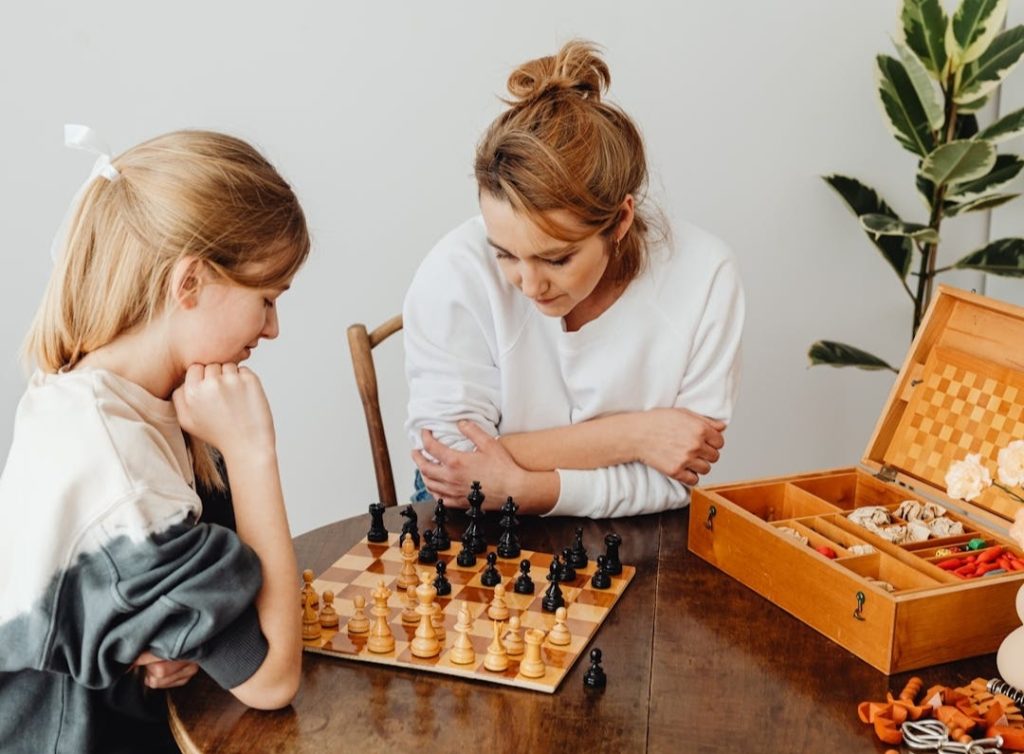My goal is to educate people so that they don’t have to go down the path of mainstream psychiatry, which is just about using medications. However, mental wellness is not just achieved with psychiatric medications. In fact, mental well-being has nothing to do with psychiatric medications. There’s so much that we can do with natural and holistic approaches that I strongly feel medication should not be the first step for anyone! The more I do this work (of holistic psychiatry) and see people responding, healing and even recovering, I feel even more strongly about this issue. I am a pioneer in holistic psychiatry, and I’ve created a new path of natural/holistic treatments for my patients. I meld my education in psychiatry and passion for Ayurvedic and Functional Medicine to take this uncommon path. I look at every aspect of the patient, from a ‘whole person perspective’ to understand their symptoms. For it is more than just one organ or system that needs to be assessed; it is also the person’s experiences, environment, relationships, attitudes, and values that tie into who they are and how they need to heal. I am each patient’s guide on their unique journey to holistic health.
A Saint’s Inspiration
It all started with a Telugu language movie, Annamayya (a biopic of a famous saint from South India). During the time of my psychiatric residency in India, I watched the story of this 15th-century saint, Annamayya, who is considered the founding father of Carnatic music – the South Indian classical music tradition. He is credited to have composed 24,000 devotional songs of which 14,000 have survived to this day. Even after six centuries, his songs are just as popular as ever and every student of Carnatic music is taught his songs!
After watching the movie, I was hit with the realization that Annamayya’s spiritual awakening seemed so much like the psychotic experiences of my patients. Then, I wondered what would have happened if his spiritual awakening was regarded as a psychotic break, and if he had been treated with antipsychotics (which is the main approach today for psychosis). A quiet thought came into my mind which stated that he most likely would not have realized his musical genius, and he most likely would not have achieved the greatness he had in fact achieved. Because, even as a psychiatric resident in training I was learning that many antipsychotics lead to cognitive degeneration, and people with psychosis do not recover and live full lives! Then, how did Annamayya realize his potential? What is this connection between spiritual awakening and psychosis? However, as a busy resident, I did not have the time or the guidance to explore this question further, and the cognitive dissonance that came with this line of thinking was buried deep within until a few years later when I began to once again see that there is in fact a connection or similarity between spiritual experiences and psychosis.
In medical institutions and psychiatric residencies all over the world, the leading theory for causation of mental illness is thought to come from a chemical imbalance in the brain: rarely encouraging a student to consider how the whole body is functioning or not functioning. Thanks to medical advertising in the US, patients and consumers are also taught the same thing. My cognitive dissonance also showed up in this manner: I was doling out prescriptions to my patients without a second thought, but if someone in my family needed antidepressants or any other psychiatric medicine, I would NOT recommend them and would actively discourage it. All of this was highlighted with my pregnancies when I became very aware of what I was putting in or on my body. That is when my “cognitive dissonance” finally came to the surface and my acknowledgement of it led me down the path of holistic psychiatry. Rest assured that today, if something is not good enough for my family, then it is not good enough for my patients!
My Family’s Traditions
In my mid-twenties, I suffered from a laundry list of health challenges that were conveniently attributed to my genes. I lived in a hopeless state, until things started to change when I finally became pregnant with my first child. When the women in my family came to help prepare for the baby, they gave me a regimen of herbs to take along with a special diet. Ironically, I never questioned it. My medically trained mind never said, “Where is the evidence for this?” or “Where is the randomized control trial?” I instinctively knew these herbs were good for me and my baby. This began my slow realization that what we put in our bodies really impacts our mental health and our physical health.
Within a couple of years, I started looking at a more holistic approach to my health after reading an article in National Geographic magazine. It reported on the different environmental toxins and chemical levels in the blood of American adult men, women, and children as compared with the levels in Europeans. An American newborn baby’s umbilical cord as well as adult men’s and women’s levels were much higher. The scientists established a hypothesis to learn whether these chemicals were playing a role in the explosion of all kinds of diseases that we were seeing in children and adults. The evidence stuck with me; I wanted to explore this idea knowing there was more to this.
Holistic Healing
When pregnant with my second child and seeing few healthy options in the cafeteria of the hospital I worked at, I started asking: “If this cafeteria food is not good enough for me and my baby; is it good for anyone? Is it good for my patients in this hospital?” So, I started to do my research. This led me to do a deep dive at conferences focused on integrative and holistic medicine, and unexpectedly, Ayurvedic medicine. The exact ancient Indian holistic treatments my family had used while I was pregnant. I finally learned about the herbs I took and why they were necessary. I was also introduced to Functional Medicine: a branch of modern medicine that looks for root causes of dis-ease and uses treatments and wisdom derived from the ancient healing arts (Ayurveda and traditional Chinese medicine, to be specific) to heal the root causes and restore function back in the organ and in the person. Functional medicine utilizes today’s technology in the form of specialized lab evaluations that can point to the exact root causes, which are then addressed using various herbs, supplements and detox treatments. I pursued education in both of these modalities, which led me down a vastly different road from my peers who continued to strictly use psychiatric medications.
My peers and supervisors were skeptical. In 2015, the concept of practicing holistic psychiatry did not exist and is still hard to find, so I referred to myself as an Integrative Psychiatrist. When discussing treatment plans with my team at the hospital, I would say I was going to integrate prescriptions and the like, even though I was becoming increasingly uncomfortable using psychiatric medicines because of the evidence in the articles I was now reading. I would start by looking at root causes and address them. I do this by asking important questions. It’s obvious a patient’s brain is not functioning well. However, are there also other organs in the body that are not functioning well? And if they are not, how does it all tie in? Which organ failed to function first? When looking at the whole person, the patients got better. Not only in their mind but also their body. I had regular success stories of patients being relieved of their decades-long Irritable Bowel Syndrome symptoms, Crohn’s disease, Celiac, and other conditions. I had my own success story, too. After battling Hashimoto’s, Polycystic Ovarian Syndrome, weight issues, and rheumatoid arthritis, I am much healthier today in my late 40s than I was in my 20s and 30s. All I did was clean up my diet and detox. I removed the bad and provided the good. Then I figured out how to do that for patients coming in with mental illness as well.
Practicing Care
The basic concept of what I do for patients is the same. Being in my own clinic now, I have developed a six-month treatment plan to look at the level of function of every system in a patient, use food as medicine, and prescribe supplements to fill in the gaps. Along with physical health improvements, the patient’s mind is also getting tailored care. I support their learning and implementing of life skills, handling emotions, and overcoming negative thoughts to have a more stable, joyful life. This has allowed all types of patients to experience success in weaning off their psychiatric medications or other forms of medications for physical illnesses.
One patient is on the Autism spectrum and functioned at an eighth-grade level. Early on in their treatment plan, when explaining the basic tenets of using Ayurvedic medicine including diet for his healing process, he immediately spoke up about the burning sensation he experienced in his stomach whenever he ate tomatoes. Although having limited cognitive capabilities, he understood the concept of inflammation from certain foods. Over three years on a new diet, with supplements, and learning skills for his emotional awareness, he was able to wean off of many of his medications. He now lives independently outside of his family’s home and works part-time. Whenever I see him, I help him with tools on how to socialize and work toward the goal of finding a girlfriend to enhance the quality of his life.
There are many more testimonials from those graduating from my program. I have even opened up my clinic to people all over the country, and they are having the same results as those I work with in person. I see a movement happening over the last few years, and I want to fill the need of people searching for holistic care. COVID has created a distrust between patient and doctor, causing modern medicine to have “lost its soul.” However, I am ready to help, confidently armed with ancient holistic medicine and modern methods to take care of the whole person. For more information, feel free to reach out to me here.
Her Nexx Chapter invites you to join our free Community where women from around the world are connecting with each other’s stories, exploring different experiences, and transforming ideas.
The Future of Connection for Women








0 Comments